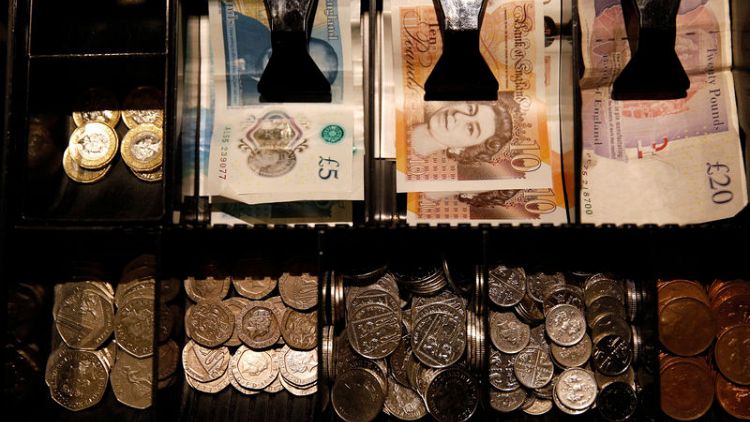By David Milliken
LONDON (Reuters) - British government bond yields rose on Monday due to the reduced risk of an economically damaging no-deal Brexit, after parliament forced Prime Minister Boris Johnson to write to the European Union to ask for a delay to Britain leaving the bloc.
Johnson still wants to take Britain out of the EU by Oct. 31, but following a parliamentary vote on Saturday he has had to ask the EU for a three-month delay, to take effect if he cannot pass necessary legislation before the end of the month.
Benchmark 10-year gilt yields <GB10YT=RR> rose 4 basis points to 0.75% on Monday, their highest level since Thursday when they hit a three-month high of 0.793%, as investors saw less need to hold safe-haven assets.
"Uncertainty is likely to keep gilts volatile, but with the chance of no-deal on 31 October further reduced and deal hopes still alive, the sell-off in gilts looks most likely to extend in the coming days," Citi rates strategist Jamie Searle said.
Goldman Sachs said on Sunday that it thought the probability of a no-deal Brexit had fallen to 5% from 10%.
Johnson wants to hold another vote on his preferred Brexit deal later on Monday, but this may be blocked by the House of Commons' speaker, who will make a statement on the proceedings shortly after parliament opens at 1330 GMT.
Short sterling interest rate futures <0#FSS:> for 2019 and 2020 edged around 1 tick lower, pointing to marginally reduced expectations of a Bank of England rate cut.
Another measure of interest rate expectations <BOEWATCH> showed around a 30% chance of a 25 basis-point rate cut before Governor Mark Carney is due to step down at the end of January, and a 55% chance of a move lower before the end of 2020.
Speaking in Washington late on Friday, before the UK parliamentary vote, Carney said that a Brexit deal would help the country's economy but that "almost existential" worries about global trade wars might prevent the BoE from raising interest rates.
(Reporting by David Milliken; Editing by Clarence Fernandez and Hugh Lawson)



